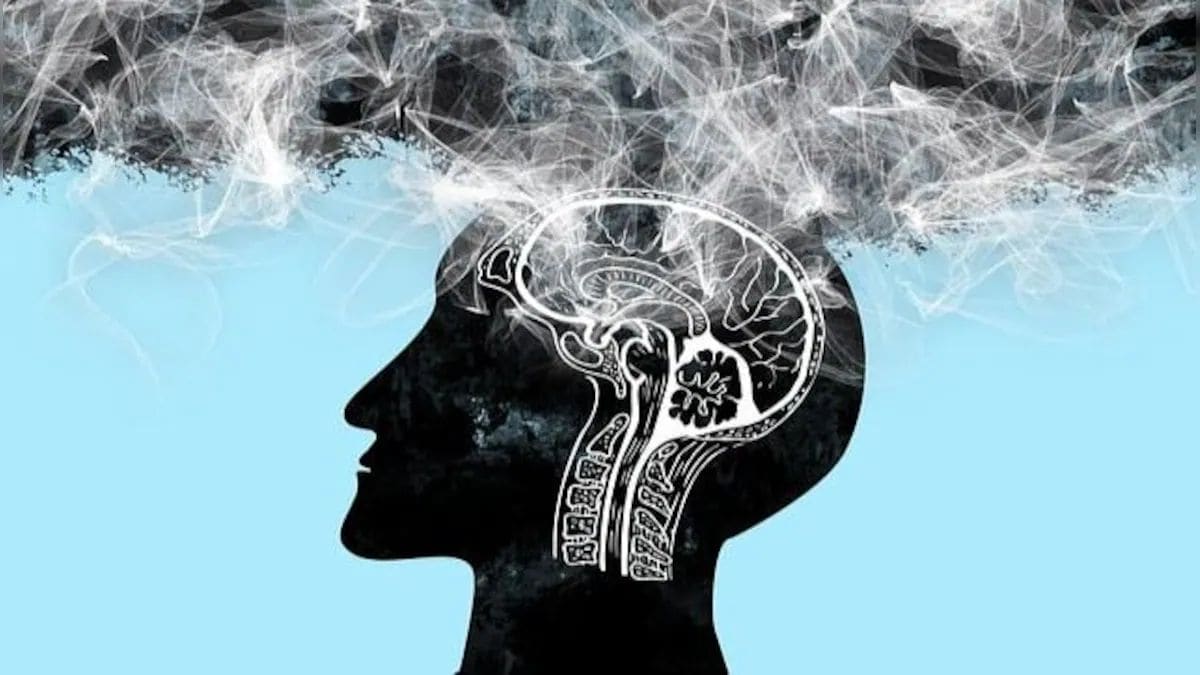“During that period, not a single day was good. Whenever the illness relapsed, I would have suicidal thoughts, and my parents had no choice but to restrain me with ropes. .
.. Each time I had an episode and lost control, I would deeply regret it once I came to my senses.

Then another episode would occur, followed by more regret. ..
. This torment persisted for 12 years,” said Kathy Ma, a Chinese-American who has lived in San Francisco for over 30 years, recalling the 12 long years of being tormented by severe depression. Ma is a devoted woman.
Shortly after immigrating to the United States with her parents at 23, she insisted on returning to China to marry her boyfriend of four years, despite her parents’ objections. However, she did not expect that, during the year-long wait for her husband’s U.S.
visa, he would be unfaithful. When Ma was five months pregnant, he asked for a divorce. After the divorce, Ma was heartbroken and filled with resentment toward her ex-husband, and even considered aborting the baby.
However, the doctor warned that an abortion at that stage would be very dangerous. A pastor also advised her that, as a Christian, she should not have an abortion. “At that moment, I felt myself slowly rising and sitting up.
However, when I looked back and saw my body still lying on the hospital bed, I thought to myself that I could not die—I had just given birth and couldn’t leave my baby. With that determination, I slowly lay back down, reentered my body, and began to hear people talking again. Eventually, I woke up,” she recalled.
Ma said, “During that time, I would go into a frenzy, shouting and threatening to harm myself with a knife or jump out of a window. Sometimes, my parents could not control me and had to call my brother to help restrain me. After these episodes, I would often pass out.
” As the sight of her child would trigger painful memories, Ma often took her frustrations out on him, shouting, hitting, and throwing things. Her son was so frightened that he would remain silent or cry. It was not until he was 5 years old that he began to speak.
He did not smile or interact with others, and from the start of preschool, he avoided playing with other children and was very withdrawn. Her son even told Ma, “Mom, I do not want to live anymore. Please take me with you.
” Ma knew she was the cause of his suffering and felt profoundly guilty, but she struggled to control her actions. A few months after Ma’s near-death experience, her mother was diagnosed with stage 4 breast cancer, which left Ma even more devastated. “At that time, I constantly thought about dying but was too scared to go through with it.
If I actually died, what would happen to my son? This torment went on and on. ..
. Every time I had an episode, I would go crazy, and once I came to my senses, I would be filled with regret. Then it would happen again, and the cycle of madness and regret continued for 12 years,” she said.
A former colleague introduced Ma to Falun Gong as early as 1995. In 1997, the colleague invited Ma’s uncle to a Falun Gong experience-sharing conference in San Francisco, and her uncle insisted that Ma accompany him. Therefore, she had the opportunity to listen to a lecture by Li Hongzhi, the founder of Falun Gong.
On the evening after the conference, while taking a bath, Ma was astonished to find that a cyst under her right armpit, which she had had for over a decade, had disappeared. Normally, the cyst was painless but would swell and become very painful when inflamed, even affecting her ability to write with her right hand. Despite this, Ma did not immediately take up the practice of Falun Gong.
At that time, Falun Gong was very popular in China, attracting tens of millions of practitioners. Her father and uncle both started practicing Falun Gong, and her father, who had suffered from severe migraines, no longer experienced headaches after beginning the practice. In April 1999, Ma drove her father to a Falun Gong study group.
Initially, she waited in the car, but after a long time, she went inside to look for him. Encouraged by her colleague, she picked up a copy of “Zhuan Falun” and joined the session, coincidentally coming across the chapter on loss and gain. “I do not know why, but as I listened, I felt an overwhelming urge to cry and could not stop the tears,” she said.
After returning home, she began reading the book and read straight through until dawn. She said she did not feel tired but instead remarkably refreshed. When the morning sun streamed through the window, her mind became clear and calm, free from the usual anxiety and restlessness.
“This book really brought me a sense of peace. It is a feeling I have not experienced in a long time!” Ma said. “Whenever I felt self-doubt, despondency, or emotional lows, I would read ‘Zhuan Falun,’ and it would bring me peace,” Ma said.
Ma vividly remembers the experience of “being revived from death” during her final episode. In 2000, Ma lost her temper after her son accidentally bumped into her, causing her to faint. Previously, whenever she fainted, her parents would apply acupressure to the Renzhong acupoint (located at the philtrum, the space between the top lip and the nostrils), which would usually bring her back to consciousness.
However, this time, it did not work. In a state of desperation, her parents suddenly remembered the Falun Gong teaching videos she frequently watched and decided to play one for her. “A thought came to me,” she recalled.
“‘I cannot commit suicide; my Master said that suicide is killing and is a sin,’ and then I regained consciousness.” When Ma regained consciousness, she felt as if nothing had happened; she was calm and composed, in stark contrast to the usual despair and depression she had experienced after previous episodes. The next day, she attended a job interview and was offered the position.
Since that incident, Ma’s depression has not recurred for 24 years. During this time, she ran a company, worked in marketing, and did accounting, leading a normal and active life. Naturally, she has also continued to practice Falun Gong diligently.
Practicing Falun Gong has led to significant changes in Ma’s personality. “My temper has greatly improved, and I have become much more cheerful and talkative. My emotional resilience has also increased, and I feel much stronger,” she remarked.
Ma’s transformation also positively affected her son. “My son joined me in practicing Falun Gong, and just like me, he started to smile more often,” she said. Today, Ma’s son is a healthy and positive young man.
Together, they participate in a band comprised of Falun Gong practitioners, regularly practicing their instruments and performing at community events. “I am incredibly grateful to Master Li for bringing happiness and peace to our family,” Ma said with tears streaming down her face. Yang stated that Ma’s recovery is difficult to explain from a medical perspective.
“If we have to explain it, we can look at four aspects of a person: the physical structure of the body, the biochemical processes, the qi (energy) as described in traditional Chinese medicine (TCM), and the spirit, which in spiritual practice is referred to as the true soul.” Yang said conventional medical treatments like medication address biochemical imbalances, surgery addresses structural issues, and acupuncture regulates qi. However, Ma’s underlying issue was at the level of consciousness, requiring methods to awaken her spirit.
“Master Li’s teachings evidently succeeded in awakening her true soul and consciousness, which is why they produced such remarkable results,” he said. “Humans are inherently complex, and the issues we doctors can address are often superficial,” Yang said. “When the root of the problem lies in consciousness and spirituality, medical intervention options are very limited.
”.

















